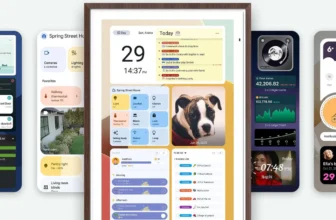
Artificial intelligence continues to be one of the driving forces in transforming business, but it’s easy to forget that AI has been transforming the workplace for decades.
Most are familiar with the Turing Test, formulated in the 1950s, but did you know the first chatbot dates back to 1966? ELIZA was devised in MIT as an early form of human-computer dialogue. If you follow the link and give it a go, you’ll see that it fails the Turing Test almost immediately––but at the time it was a groundbreaking piece of software.
Now, 60-odd years later, chatbots are everywhere, with millions of people interacting every day. Since the latest iteration of generative AI chatbots caused a seismic reaction across the world, there have been warnings that the technology will take jobs away from millions of people.
Further exploration shows that that may not be the case. Take this recent IBM report which observes that “AI won’t replace people, but people who use AI will replace those who don’t.”
In a similar vein, the World Economic Forum predicts that AI will “disrupt” 85 millions jobs through 2025, while potentially creating up to 97 million roles in the process. It’s important to point out that these new roles won’t just be reserved for technology companies.
AI is everywhere, from retail to travel, healthcare and education through entertainment and construction, and the ways it is being deployed are as diverse as the companies deploying it.
And a study by Snaplogic found that AI improves workplace performance for 81% of workers, while 89% believe it could benefit them by potentially reducing their workload by half.
Areas where this can be achieved include using AI to improve decision-making or get better insights, as a creative tool, to drive collaboration and to improve engagement with customers in a broad range of ways.
According to the OECD, an impressive 49% of U.S. finance and insurance companies are already using AI, alongside 29% in manufacturing.
There is no doubt that massive opportunities exist for those who embrace AI rather than shy away from it. According to The State of AI report, 70% of employees expect their companies to be hiring for AI-specific roles within two years––contrasting sharply with the mere 4% who believe that AI poses a threat to traditional jobs.
No matter which side of that fence you’re on, you should be thinking about upskilling your AI game so that you’re on the right side of IBM’s theory above.
There are multiple areas where AI upskilling can reap benefits, no matter what sector you are in. These could be AI programming, prompt engineering and data analysis, not to mention proficiency in the many AI-powered productivity and administrative tools available today.
AI outside of tech
In addition, The State of AI report reveals that 70% of companies are incorporating AI into their internal upskilling initiatives. The OECD data supports this, revealing that AI improved performance and working conditions for 80% of professionals in finance, insurance and manufacturing in the U.S..
Outside of tech, there are many possible avenues for an AI expert to excel and drive those industries into the next decade. In banking, generative AI can help improve essential banking functions by managing data-heavy tasks, while enabling banks to unlock hidden insights and augment staff productivity.
In healthcare, chatbots are already helping to effectively triage patients by analyzing patient data and records, aiding human doctors to make faster, more accurate diagnoses and treatment plans.
In agriculture and manufacturing, plant equipment and machinery are increasingly being managed by AI, while in retail, specialists are helping to refine customer experience by implementing AI-driven chatbots.
Finally, and perhaps most crucially, HR professionals are using AI to refine the hiring process and create an equitable hiring landscape, something to bear in mind when preparing for your next role.
If you’re seeking a change and considering a new industry to develop your skills, browse the nextpit Job Board to find your next placement.
A senior role has become available at Bank of America, which is seeking a Senior Vice President for Software Development. In this influential position, you will be charged with developing complex requirements to accomplish corporate business goals. These include proof of concept of new ideas, detailed life cycle and cost projections, as well leading actual software development. If you are seeking a high-level challenge, this may be the role for you.
AI pioneer BlackRock is seeking a Full Stack Engineer to join its team, developing products based on statistics, machine learning, optimization, and other strategically important AI methods. This includes partnering with product managers and stakeholder teams to develop infrastructure that facilitates analytics within a larger, integrated workflow.
On the topic of opportunities outside of tech, perhaps a new career in the FBI appeals to you? The Bureau is seeking to recruit new Special Agents with a STEM background, with particular experience in network security, computer science, software engineers, math formulation and more. As you can imagine, the application process is beyond rigorous, so be prepared.
Start your job search today via the nextpit Job Board. This article was written by Doug Whelan.







